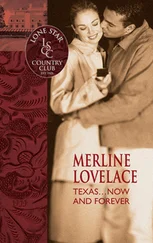“What line?” Maggie pictured the yellow lines that striped the floor of the prison, marking the various places where the prisoners had to stand for services or inspections.
“The moral line,” said the woman coyly, as if she knew exactly which word would staple Maggie’s wandering attention to her face.
“I don’t understand. What did you do?” Maggie tried not to sound too eager, but a fragile hope expanded in her chest that there were other people like her out there, people who cared about something other than sex and makeup and what to cook for dinner, people who were used to righting wrongs and could tell her how it was done. People she could turn to for help with Tomás. “Freeing people is something I’m interested in too,” she whispered, just in case the prison was riddled with listening devices. Even though Maggie was watching carefully to gauge the woman’s reaction, she wasn’t prepared for the joy that spread across her face.
“Then you know.” The woman was beaming quietly now, and Maggie could see that she had once been beautiful. “Then you know what it’s like.”
“I’m not sure,” said Maggie. “At first I couldn’t understand why the people here weren’t rushing about trying to fix all the things that are wrong, and then I thought, How can I expect other people to do something I’m not willing to do myself?”
“Be the change,” said the woman.
“I’m not very experienced, so maybe you could give me some advice.”
“I…Well…First, I should probably fill you in on exactly what my group does.”
A metallic sound rang from somewhere ahead of them. They had reached an anteroom past which Maggie had no access, so she turned to the woman and said they would have to wait for the guard to call ahead.
“It’s just as well, just as well,” she said. “I couldn’t bear to see anyone in solitary confinement.”
“I don’t think they do that here,” Maggie said again, and again the woman responded, “Don’t be too sure.” This time, though, there was nothing smug about the expression on her face, which was filled instead with hope and yearning. She reached out and grasped Maggie’s sleeves, pulling her a little closer as if she too was worried that the walls had ears. “My George was in solitary confinement for four years,” she said. “It’s why I took him on.”
While they waited for the guard, the woman told Maggie that the members of her group adopted specific nonviolent prisoners and tried to help them. “We publicize their cases and bring injustices to light. We find attorneys who will donate their services, and then we run various errands in order to keep the cases from falling through the cracks.”
“How noble!” said Maggie. It was the kind of thing she was hoping to do, and she could see she had gotten off track by merely befriending Tomás and teaching him math.
“Noble? More like exhausting! But you start off filled with idealism, anyway. Then, at some point, you become aware of the line. Oh, you pretend not to see it. You act all prim and dance around it like a schoolgirl, stepping very carefully whenever it’s in sight. But after a while, you want to be close to it.”
The woman opened the swimming pools of her eyes wide, as though she were noticing something unexpected or trying not to cry.
“And eventually you just step over it. But you don’t cross it in a blaze of righteous glory, which is how you thought it would be. You cross it, really, on a dare. Or you cross it because you want a bigger and bigger dose of whatever it was that made you step up to it in the first place. You cross it because you are now an addict. Because, frankly, it is exhilarating and because it’s a lot more fun than housework or your day job.”
The moment ended, and the woman’s eyes snapped shut. When she opened them again, the hope had vanished, and everything about her sagged with defeat.
“I don’t understand,” said Maggie.
“Of course you don’t. How could you?”
“But what did you do when you crossed the line?”
The woman’s face softened, and her lips quivered into a smile. “I fell in love with George,” she said. “But now I’m about worn out, which is why I came here today. The ACLU people — they’re very structured and focused. And disciplined! They all respect the line. That’s what I came for — to get advice on that.” The woman’s mouth settled into a tight barrier between her running nose and quivering chin, and she seemed to be waiting, as Maggie was, to hear what words would come out of it next. “No, that’s not entirely true,” she said. “I came to pass George on to someone else.”
She held up a quilted bag with the name GEORGE appliquéd onto the side in contrasting fabric. “Of course the work can be very rewarding if you get your prisoner out of jail, which is why it’s so frustrating to be representing George. There seems to be a vendetta against him. If you read the file, you’d see for yourself. Not to mention that George is very…well, dashing. It’s been an honor to advocate for him, but nothing I did made one bit of difference. So I came here to find a replacement, and then I’m going home — if I still have a home to go to.”
At first Maggie felt cheated — why couldn’t Tomás be dashing? Why couldn’t she be passionate and strong? But then a rush of excitement and possibility surged through her. If befriending Tomás was murky and ambiguous, representing George would be a completely good and noble thing. There was a vendetta against him! He was handsome and nonviolent! He had been kept in solitary confinement for four long years! “I’ll represent George,” she blurted out.
Relief flooded the woman’s eyes. “I want to assure you that the advocacy program is completely rewarding,” she said.
While they were talking, they had circled back toward the director’s office. When they reached the conference room, the woman thrust the quilted bag into Maggie’s hands and said, “The appellate attorney’s name and contact information is in the first folder. He’s part of a network of attorneys who take these cases on.”
Maggie asked if he might represent Tomás too.
“That depends on where Tomás’s case was adjudicated. Anyway, you’ll find a lot of information here — telephone numbers and email addresses and official documentation, as well as copious handwritten notes — everything indexed and color-coded.”
When they reached the conference room, the woman snatched up her jacket and hurried back along the corridor and down the stairs, not even bothering to call the elevator. Maggie was left with the quilted bag sitting in her lap like a bloated and limbless child and the sinking feeling that even if she took on George’s case, she couldn’t abandon Tomás. And then, from the heaviness of the burden emerged a sense of sureness and direction. If she really wanted to help Tomás, she would stop buying him little presents. She would stop trying to make prison tolerable. Instead, she would start trying to free him.
When Valerie and DC left for the day, Maggie picked up the telephone and dialed the number for George’s lawyer. “Send me the fellow’s paperwork,” said the lawyer. “I can’t promise anything, but I’d be happy to take a look.”
Maggie said she would, but first she had to get the file out of the prison, which, given the tight security, might prove problematic. If she couldn’t handle Hugo, she told herself, she didn’t deserve to be George’s advocate. She didn’t deserve to be anyone’s. Besides, the blouse incident had given her an idea, and one soft summer evening, she was able to smuggle the file out of the prison by unbuttoning an extra button on her blouse. She laughed at the way Hugo, with his handsome face and muscle-bound physique, had fallen so easily into her trap.
Читать дальше












